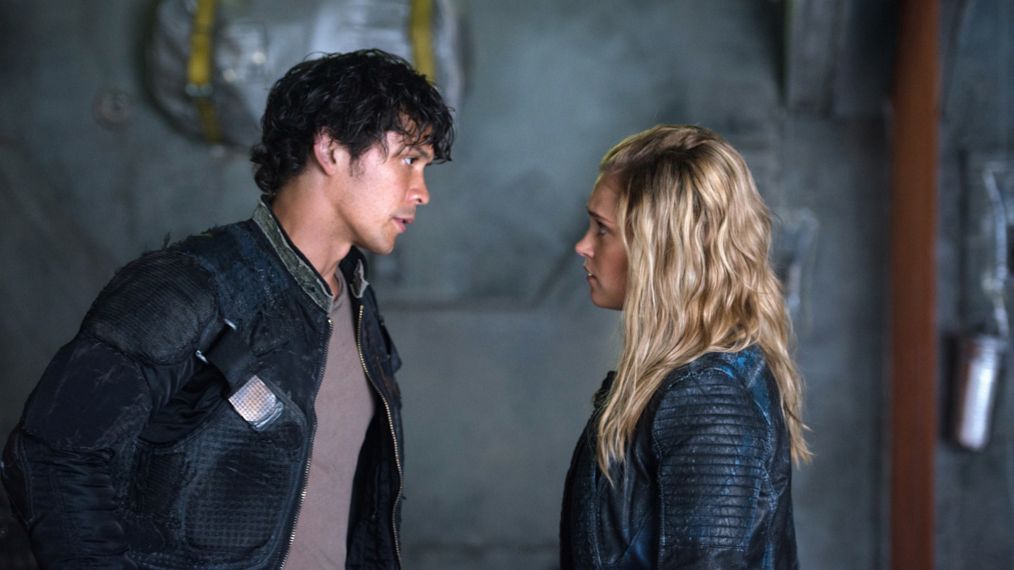The ground. That’s the dream.
Clarke Griffin (Eliza Taylor) first spoke those words in voiceover narration on March 19, 2014, when The 100’s pilot episode aired… and 101-counting-Bellamy (Bob Morley) juvenile delinquents set foot on an irradiated Earth to the tune of “Radioactive” by Imagine Dragons. Over seven seasons of characters fighting tooth and nail for survival, fan-favorite romances blossomed, impossible choices made it clear there were no good guys, and levers were repeatedly pulled in season finales. We chatted with Morley and Taylor about the process of joining and filming The 100 a decade ago, and what the show means to them today.
Morley said he could have read for the character of Finn (Thomas McDonnell), but he ultimately decided to audition for Bellamy. While he said the casting process was “by the book,” aside from Eli Goree [who played Wells Jaha], he didn’t meet his future castmates until the show’s inaugural table read. He never had a chemistry read with Taylor, Marie Avgeropoulos [who played Octavia], or any of the characters Bellamy would spend years with throughout the show’s run. All in all, Morley had first gotten to Los Angeles and booked the job within 10 days. “It was pretty wild,” he said.
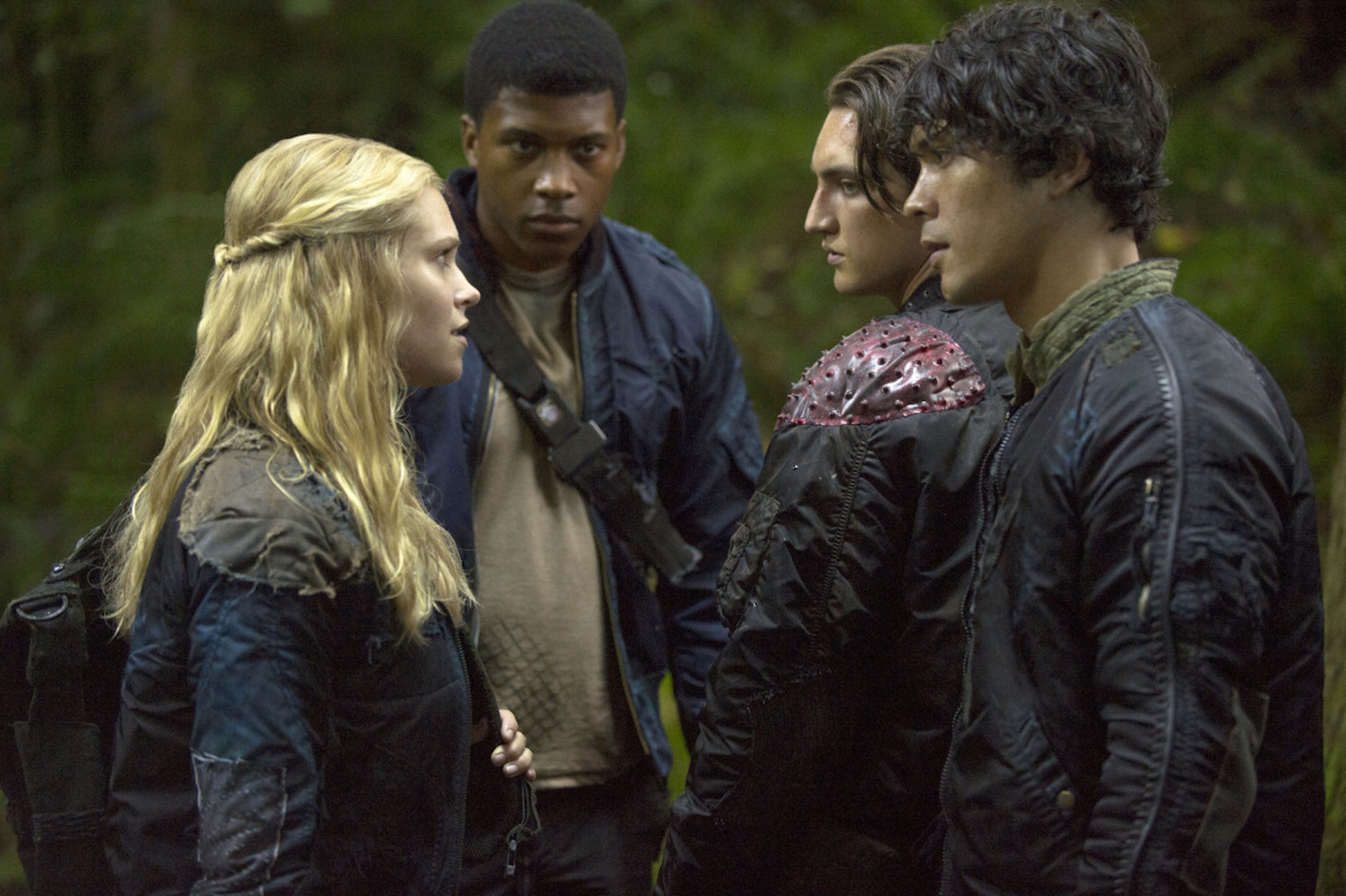
The CW
Taylor, on the other hand, had an unconventional experience in her casting as Clarke. As she explained, the network had been struggling to find the right actress for the part of Clarke Griffin. “They were looking all over the place,” Taylor remembered. “My manager sent a tape that I had done a year before to the casting agent at the time and said ‘Take a look at this girl.’” Then, before I knew it, I had a meeting at The CW. I met with casting and Peter Roth [the head of Warner Bros. Television Group], and the next day I had the role.”
Taylor also remembers her out-of-the-ordinary casting coming with nerves; both on her part and, possibly, for the cast and creative staff who’d not met her before. She hadn’t read as Clarke during the audition process, so her first experience saying her character’s lines came during the table read. “I know everyone was holding their breath because they were like, ‘What if she sucks?’” Taylor laughs. “There was a sigh of relief when I started that monologue.”
After the table read, the duo got to work developing their characters while filming the pilot. Morley remembers “absorbing as much as [he] could” during the shoot for the first episode, and the fact that it was his first American show; it was Taylor’s first American show as well. “It was a pretty wild and exciting time for me, especially having worked in Australia,” Morley recalls. “It was vastly different working on an American project in Vancouver, and having a full trailer, having stand-ins was new for me. I was like, ‘This is crazy.’”
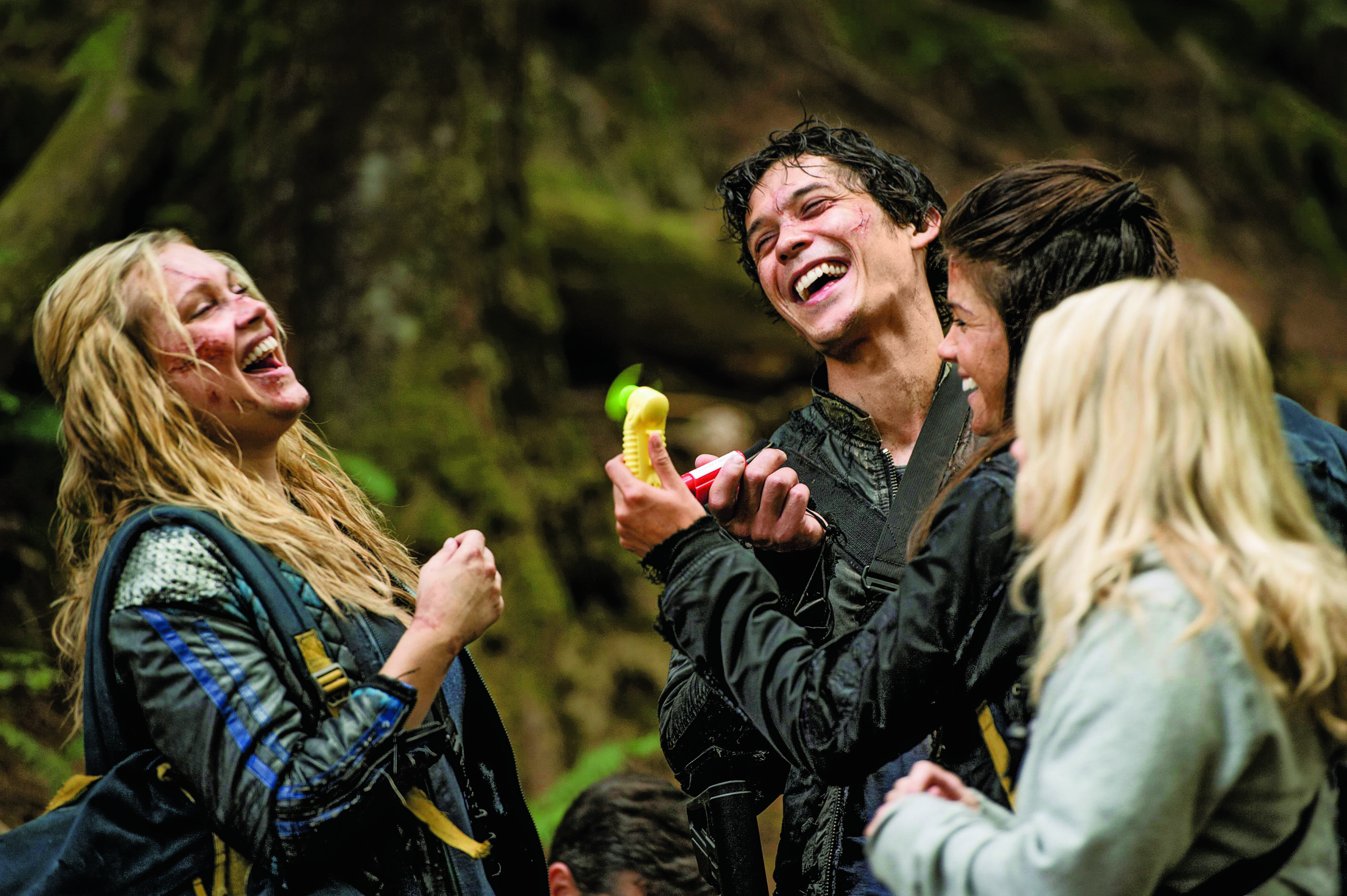
The CW
For her part, Taylor found inspiration for Clarke from a pop culture phenomenon in 2013: The Hunger Games. “This was just what came to me when I read the Pilot, and it was, to me, it was very Katniss from The Hunger Games,” Taylor said. “I couldn’t get Jennifer Lawrence’s voice out of my head. I was like, ‘Well, I have to because I can’t just play her!’ I definitely loved The Hunger Games, and I drew a bit of inspiration from Katniss for that very first episode. That was kind of where Clarke was born.”
Bellamy’s distinct voice, on the other hand, wasn’t quite a deliberate acting decision. Morley explained that he woke up hoarse on the first day of shooting the Pilot, which then ensured he’d continue that voice for the rest of the Pilot… and the show. “With Bellamy, as the seasons went on, [his voice] just got lower, and lower, and lower,” he remembers. “It was kind of hilarious each year that we’d get picked up, revisiting that voice.”
The 100 was picked up to series, and filming for the rest of Season 1 began in August 2013. For Taylor, those are some of the fondest memories she has of her time on the show. “I am very sentimentally attached to Season 1,” she said. “It’s so nostalgic. It was my first American show, it was my first lead, and it was my first chance to show people what I could do. Every day on set, I felt like I was in a dream. Looking back it’s still my favorite season, and I just love it.”
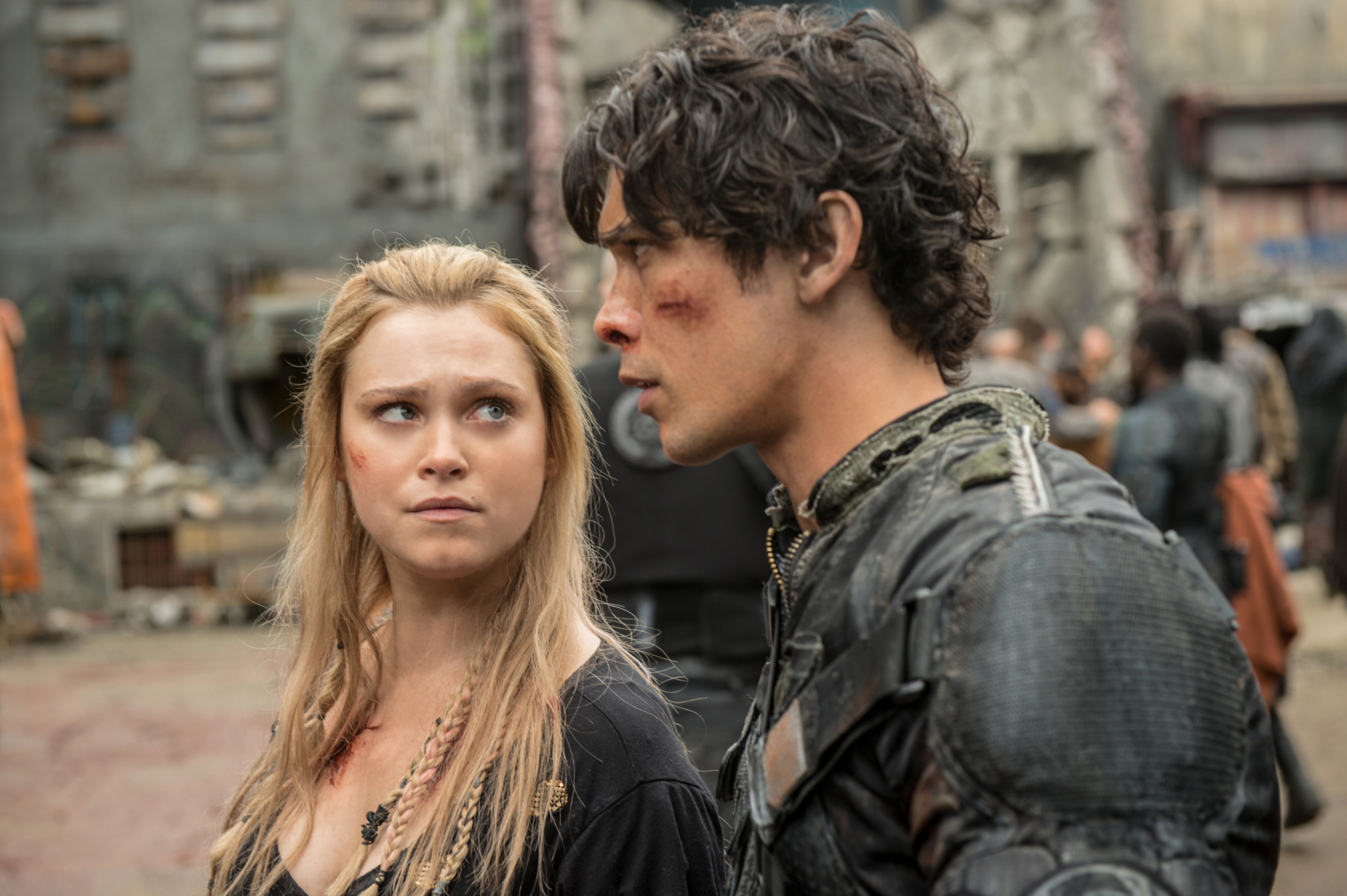
The CW
Filming in Vancouver, she pointed out, gave the cast a unique chance to bond. “We shot in this incredible national park, up in the mountains,” she said. “There was no cell phone reception, so we all just had the most incredible, deep, long conversations with each other because there were no distractions. When we weren’t working, we were connecting. That’s what bonded us all so much, was working up there in all seasons, through all times of day and night. It was pretty incredible. I’ve not had an experience like that since.”
The first scene Morley ever filmed for The 100 was Bellamy’s reunion with Octavia aboard the dropship, and opening the dropship doors. If Morley could re-shoot that scene now, knowing what he knows about the complexities of the Blake siblings’ relationship, he said he might take that opportunity. “I would’ve done it quite differently in terms of how much that reunion with my sister meant,” he said. “But at the time of the Pilot, I could never know what that story would entail.” Ten years later, he doesn’t remember what he was told about Bellamy’s emotional redemption arc in Season 1, but he does remember that what initially drew him to audition for his character rather than Finn’s was the label of the “bad guy.”
“The thing about playing someone with the connotation of “bad” is that they don’t see themselves that way,” he said. “I had to try to find the good in him, or the reasons why he was making those poor choices. As we went along and he made a bunch more questionable choices, I was excited to pull that apart.”
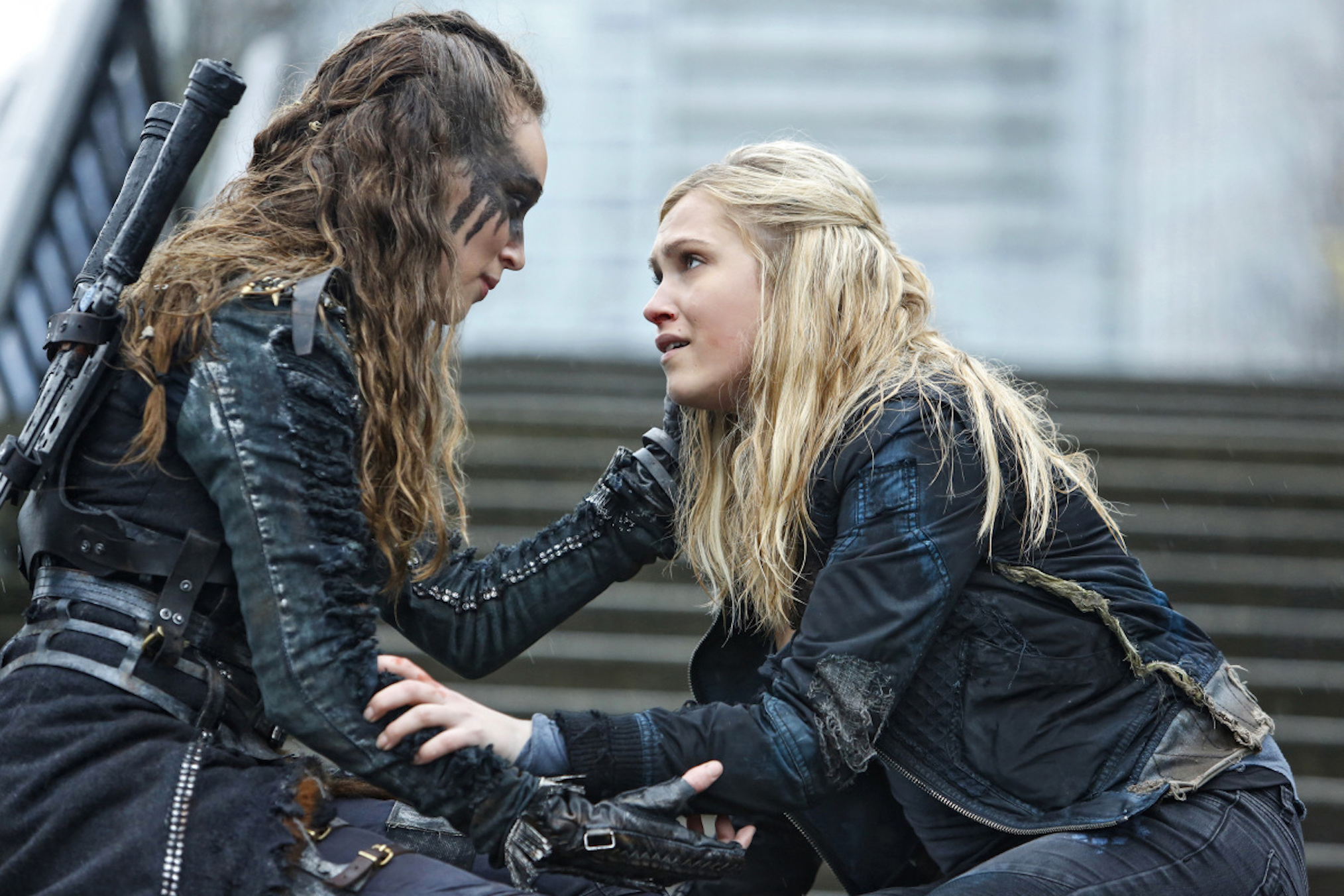
The CW
Taylor, on the other hand, said that she’d choose to give additional emotional resonance to many of Clarke’s scenes with Lexa (Alycia Debnam-Carey) if she could. “Even though I’m very proud of it, I think knowing what I know now, all of my moments with Lexa in the beginning would’ve probably been more charged,” she said. “I didn’t even know Clarke was bisexual until we were shooting that episode. Knowing things like that would’ve influenced my performance, for sure.”
At the time of the show’s airing, the fanbase’s overwhelming passion for Clarke’s relationships—particularly with Lexa and with Bellamy—often dominated social media. When asked what she thinks made those connections so engrossing to fans, Taylor boils it down to the writing and chemistry. “In this industry, you will have romantic pairings on paper that look like they’re going to have fireworks, but if the actors aren’t vibing, it can fall flat,” she said. “I was so lucky that two of the most important relationships my character had were played by two incredible human beings who were so raw and so real.” She added that she felt lucky to work with them both— “and obviously, I married one of them.”
While the show ended with its seventh and final season in 2020, thanks to its availability on Netflix for streaming, new fans are still finding The 100. The 100 conventions are still taking place (Taylor says the quote she’s most frequently asked to write is “I bear it, so they don’t have to”). Both Taylor and Morley brought up different aspects that they felt lent the show such staying power in the genre, as well as the show’s darker tone as compared to other CW projects.
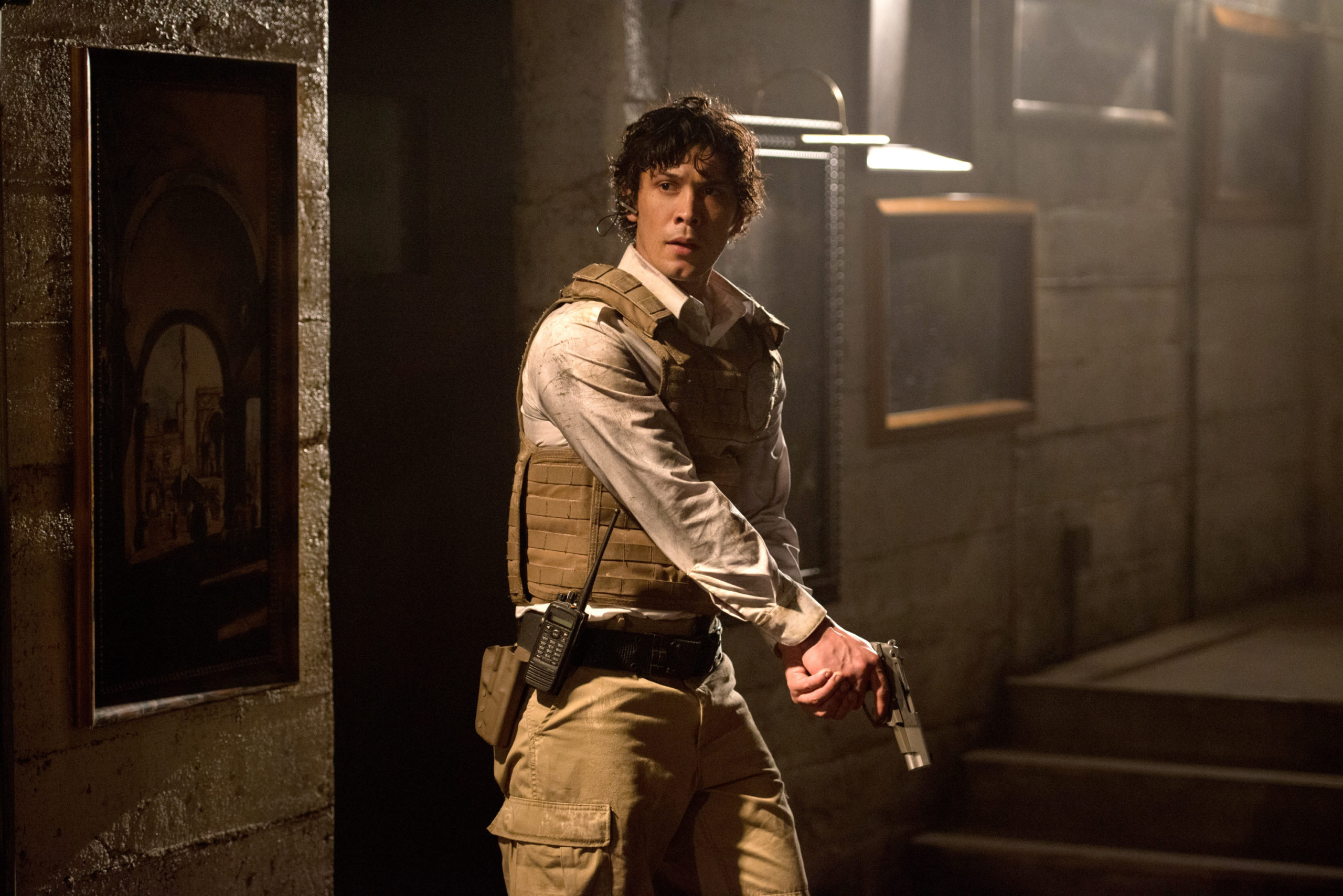
The cW
“The show really bared its teeth,” Morley said. “Especially in Season 1, there were so many scenes where we thought, ‘Wow, we’re actually doing this?’ We were pushing the boundaries of what we could get away with on the network in terms of torture scenes and quite violent stuff. We had incredible hair and makeup artists, and the camera team, and stunts. Each time we would have a stunt sequence, it’d be bigger and more elaborate. It was an amazing thing to watch the show develop such grit behind it when it might not have presented as that tone of show in the pilot. It showed a grittier aspect of survival.”
Characters, Taylor said, are what she thinks has kept viewers finding and returning to the show. “The amount of love and new fans the show is getting just from it being on Netflix is amazing to me,” she said. “There’s something so special about these characters. I can’t quite put my finger on it, but it’s an incredibly diverse group of characters. They are so complex. Even though they’re in this far-fetched reality, they’re still so relatable. There’s something for everyone in The 100.”
